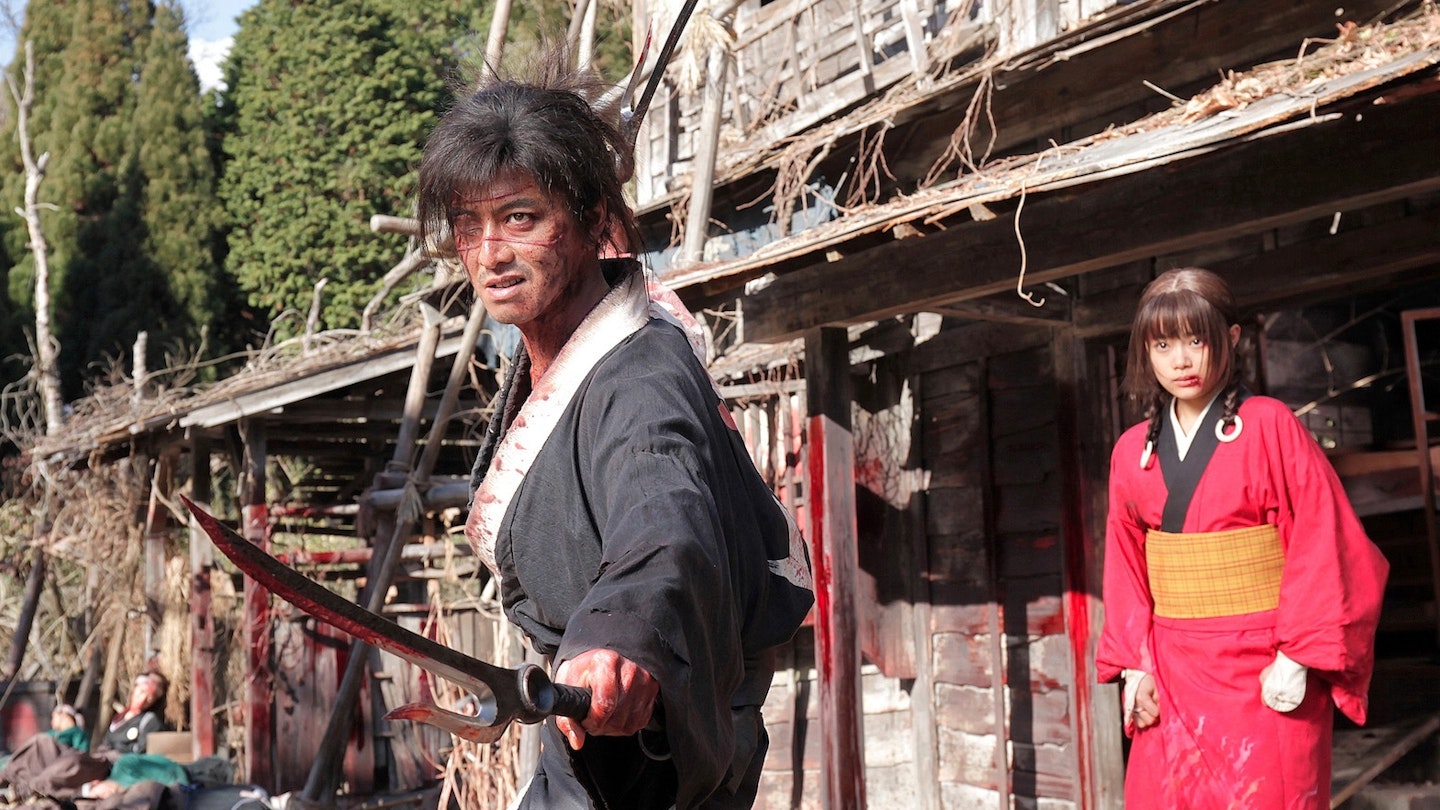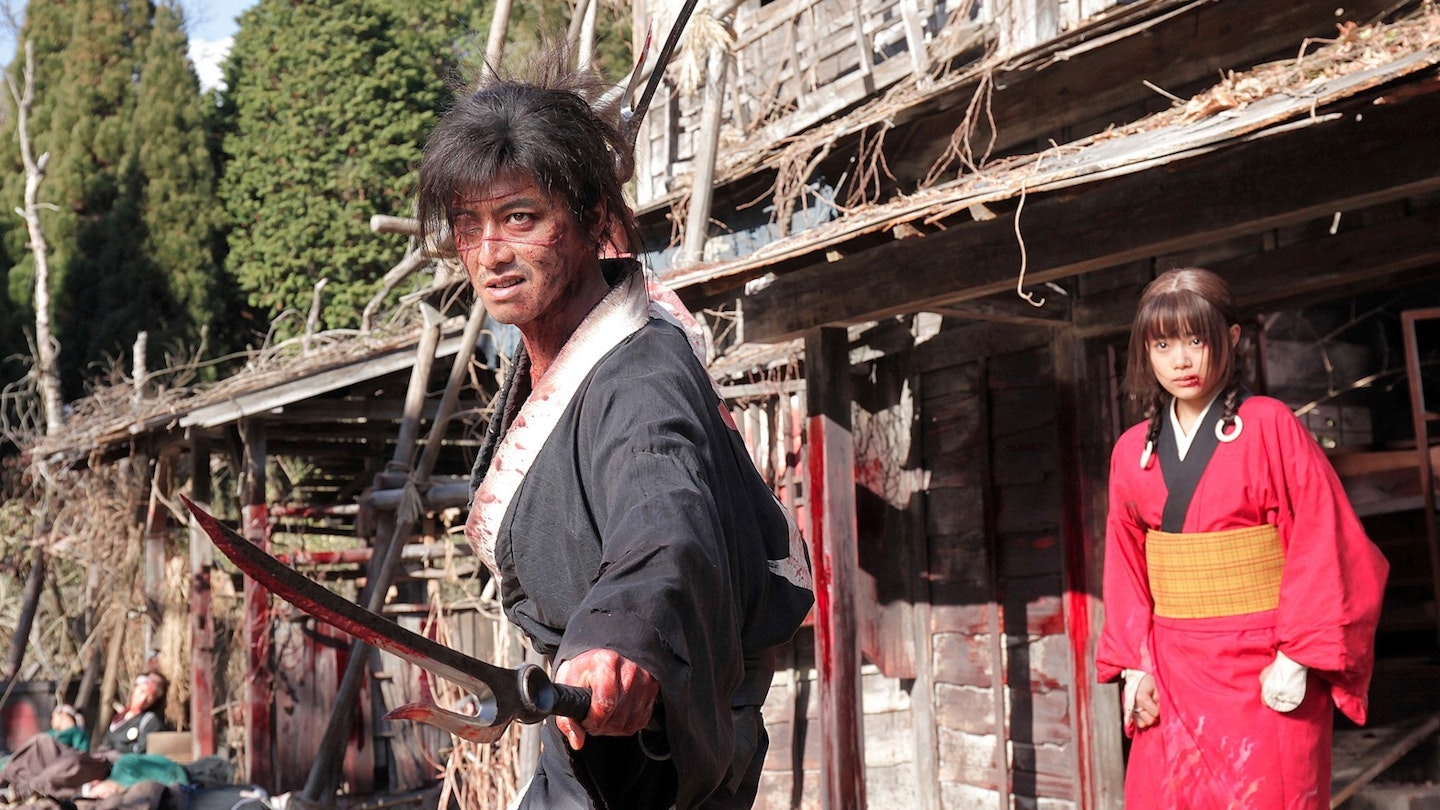Takashi Miike is prolific. So prolific he’s probably finished another movie by the time you read this sentence. He’s a hundred movies into a career that has served up wildly diverse fare, from the bleak chills of Audition to demented zombie musical The Happiness Of The Katakuris, and ultra-violent action with Ichi The Killer. And while Blade Of The Immortal explores territory Miike has entered before with Hara-Kari: Death Of A Samurai and 13 Assassins, when the technique is this good, it’s hard not to applaud.
This is not a film that skimps on the claret.
An extended prologue, shot in black-and- white, introduces us to Manji (Kimura), a disgraced and tormented samurai, protecting his young sister Machi (Sugisaki) from ruffians. Quickly, though, Machi is dispatched, and a vengeful Manji finds himself facing off against a hundred sword-swinging warriors. It doesn’t end well for him, but it ends less well for them, in the first of several beautifully staged extended battles which culminate with Miike pulling the camera back to show just how many dead litter the ground. Upon his dying breath, Manji is given immortality by a mysterious old lady, and off we go, flitting into colour and fast-forwarding 50 years. Now Manji teams up with Rin (also played by Sugisaki), an orphaned girl who reminds him of his dead sister, and sets off on a mission of revenge.
As Manji hacks and slashes his way through a series of encounters with the men of evil warlord Anotsu (Fukushi), what could quickly become dull and repetitive is enlivened considerably, not just by Miike’s consistently inventive blocking and staging, but by neat tweaks to convention.
A story that could otherwise be unbearably grim is leavened by moments of pitch-black, offbeat humour, notably in one sequence where Manji finds himself facing off against a fellow worm-ridden immortal. And then there’s the novelty value of having an unkillable hero who can still take a licking during combat, with Kimura beautifully selling the indefatigable Manji’s agony as he’s repeatedly sliced, stabbed and skewered.
The budding relationship between Rin and Manji is nicely calibrated, with the duo’s philosophies and goals changing along the way, but it’s the action which will attract many. At 57, Miike is now officially an old stager, working in an arena where younger bucks such as The Raid’s Gareth Evans, John Wick’s Chad Stahelski and David Leitch, and The Villainess’ Byung-gil Jung are rewriting the rulebook. But as with George Miller before him with Mad Max: Fury Road, his action scenes have never felt more fresh or vital. Miike ensures that each bout feels different from the one that preceded it by switching up the settings and the styles of the assassins.
This is not a film that skimps on the claret — action fans will have a field day, but gorehounds will have a field year, as Miike lops off arms, slices throats, and slashes out eyes. Or as he likes to think of it, just another Wednesday.


